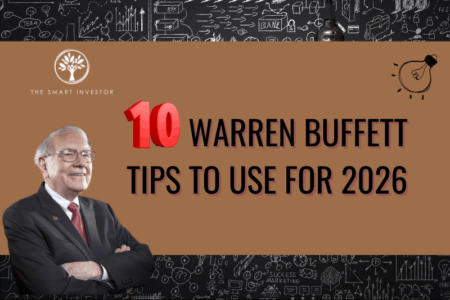If making money was easy, we would all be rich. That is how the saying goes. But making money can be easy – especially if we have the patience to allow our investments to grow, mature and reward us in the process.
I am an unashamed long-term investor. I do not believe that there are any get-rich-quick schemes in the financial markets. At least there aren’t any that I can think of that are legal.
Some traders might think differently. They believe that they can jump in and out of shares and make a quick turn in the process. But investors who think that they can make a quick buck on the stock markets are often bitterly disappointed.
So, when stock markets take an unexpected turn for the worse, as they have done recently, what should we do? In principle, it boils down to just three simple choices. These are in no order of preference:
- Hold out and wait for a recovery
- Sell our investment
- Buy more shares
Each option has its merits. Also, as no two investors’ financial positions will be identical, there are no hard and fast rules that will apply to everyone all the time. So, what does each option mean?
Hold out and wait for a recovery
Companies exist by making profits. If they do not, they will eventually go out of business. The more profit a business makes, the more valuable it can become. It should also be remembered that businesses can have good and bad years. In other words, profits may vary from one period to the next.
Over the long term, a good company’s profit should improve, especially if the business is well managed and is able to take advantage of the prevailing conditions. If we are invested in a company that fits these general criteria, then we should not be overly concerned if its share price declines.
After all, a share price is an indication of what the market expects from the company in the future. In other words, it is known as a “leading indicator”. By inference, a fall in a company’s share price may suggest some degree of pessimism about the company’s outlook.
But at any point in time, a share price is the product of its earnings per share and its price-to-earnings (PE) ratio. As investors, we need to differentiate between the two components.
Earnings per share do not generally fluctuate from one minute to the next. The same cannot be said about the PE ratio which can be affected by sentiment – and sentiment should have no place in investing. So, focus on earnings. If that has not changed, then nor should we.
Sell the lot and head for the hills
There can be compelling reasons to sell our holdings in a company. First, the outlook for the company may have deteriorated appreciably. Perhaps the existing management is unable to address the issues facing the business. But ditching our shares is a drastic step, and it should not be entered into lightly.
We should also review the reasons why we bought into the company in the first place. Then decide if there have been significant changes which may cause us to alter our opinions about the company.
Second, we may be at that stage of our investment journey when cashing in some of our riskier investments could be sensible. This could be for reasons of retirement, when less volatile financial instruments such as cash and bonds may be preferable to stock-market investments.
Ideally, though, we should be life-styling our portfolios periodically, anyway. We should not wait for a stock-market drop to jolt us into doing something that we should already be doing. If we have been rebalancing our investments in line with, say, our age, then we should not need to do anything.
Buy more stocks
This can be a good idea if we have money available to invest. A stock-market drop can be a great opportunity to buy shares. If we already have investments that have fallen, then buying more at lower prices could make perfect sense.
Arithmetically, it will reduce the average price of the shares that we own. This is known as “averaging down”. The strategy makes sense only if they are shares in good companies. A good company does not become a bad company just because its shares have fallen. But cheap rubbish will always be rubbish.
American investor Warren Buffett said the future is never clear. He said we pay a very high price in the stock market for a cheery consensus. But uncertainty is the friend of the buyer of long-term values. He also said that when it is raining gold, reach for a bucket, not a thimble.
It is important to appreciate that stock-market declines are not uncommon. The causes might be different each time. But stock markets always recover. In the words of Mark Twain: “History doesn’t repeat itself, but it always rhymes.”
If you want to retire with a constant stream of dividends, these 5 stocks might be all you need. We’ve found 5 SG stocks that have kept paying (and growing) through inflation, rate hikes, and recessions. See what they are with our latest free report for SGX dividend investors. Click here to get instant access.
Follow us on Facebook, Instagram and Telegram for the latest investing news and analyses!
An earlier version of this article appeared in The Business Times.
Disclosure: David Kuo does not own shares in any of the companies mentioned.






